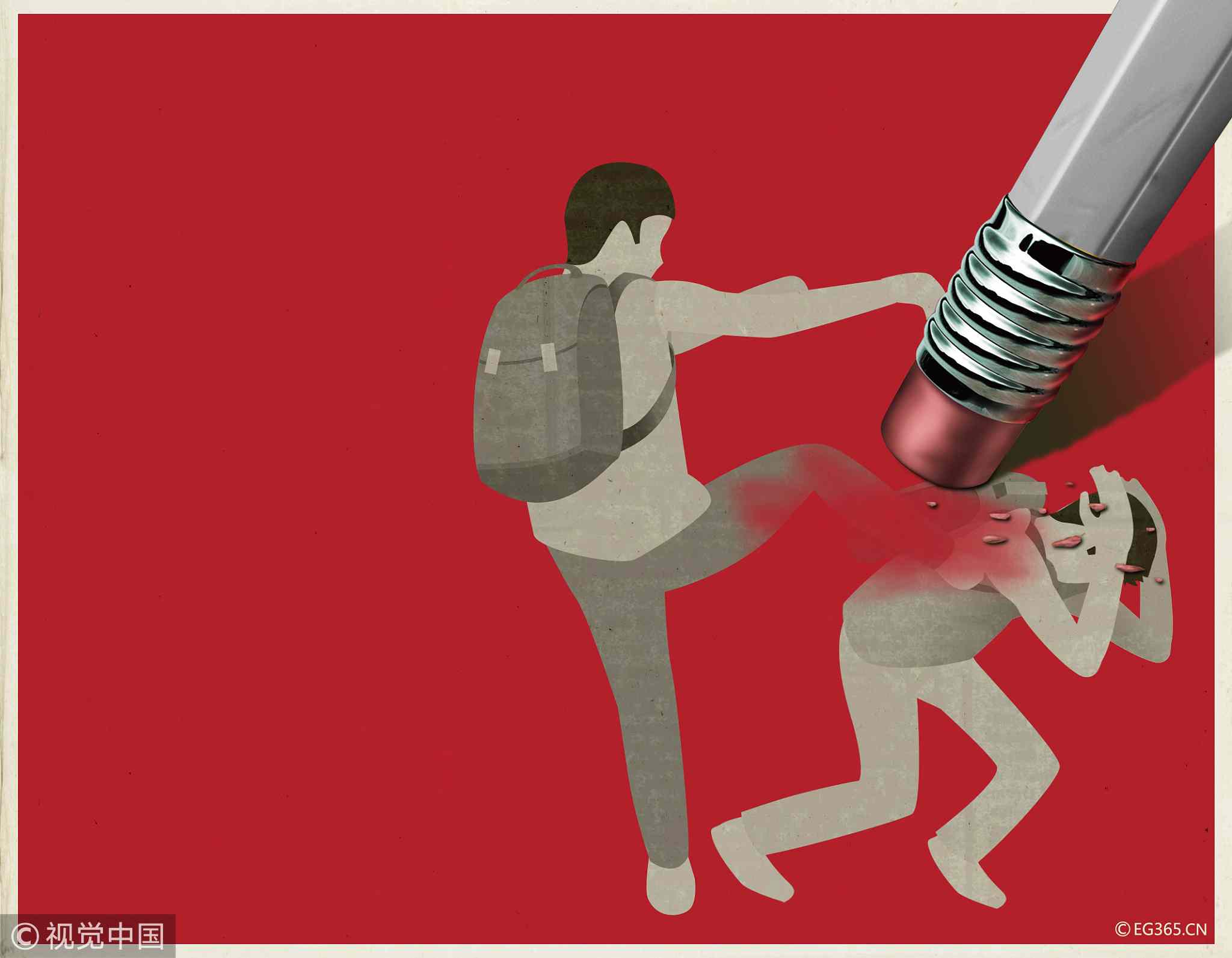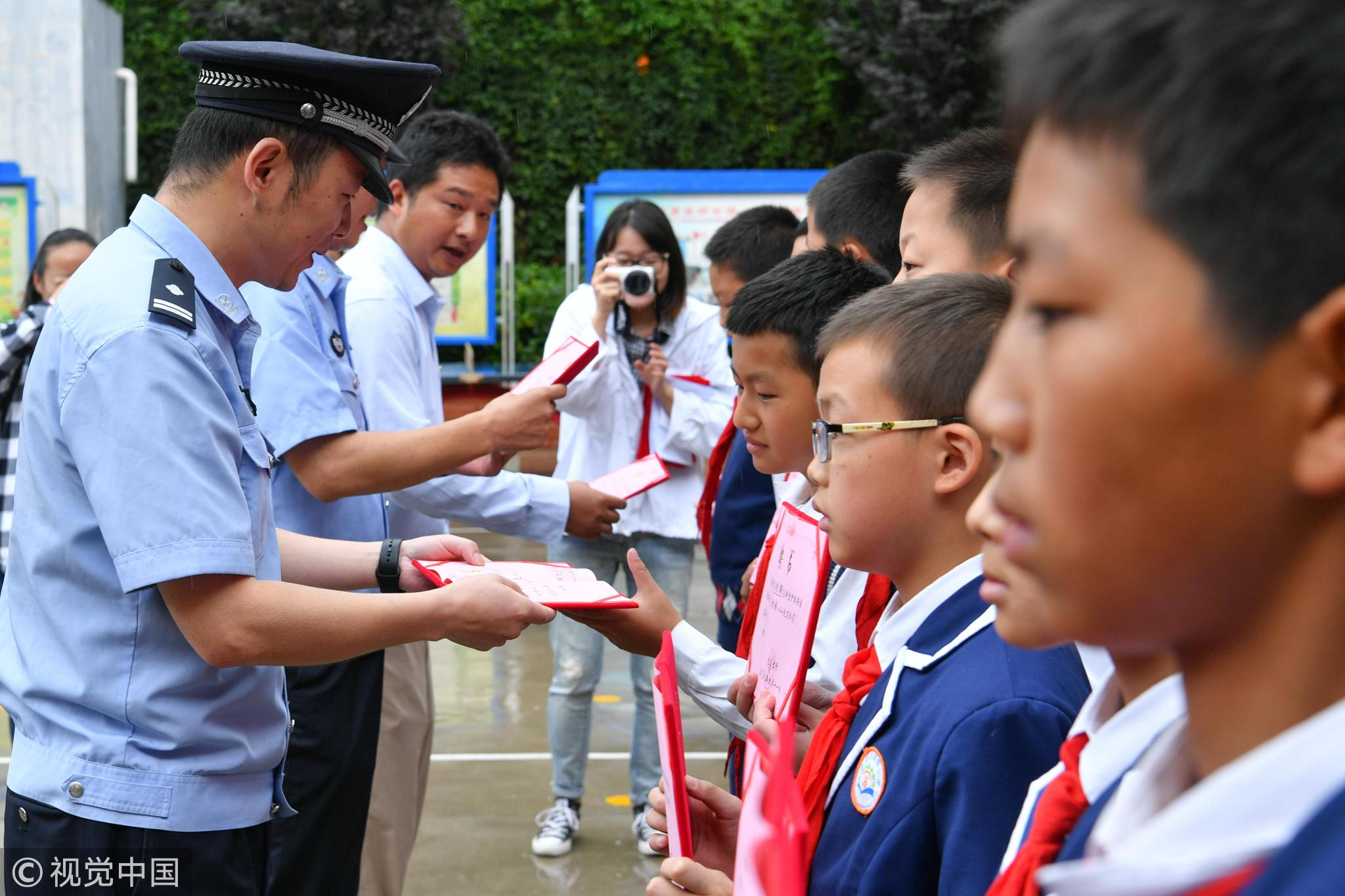
China
23:06, 13-Nov-2018
Offensive nicknames no longer a joke in Guangdong schools
Updated
22:58, 16-Nov-2018
Cui Zhaoqian

Name-calling, unkind nicknames and other forms of verbal harassment represent some of the most prevalent forms of verbal bullying in schools but as it is fairly common among teenagers, the negative influences have not been given enough oversight on campuses
Nevertheless, the education sectors in south China's Guangdong Province rolled out new guidelines on Monday, specifically defining offensive nicknames and online violence as school bullying.

Primary school students learn about school bullying cases in Hohhot, Inner Mongolia Autonomous Region, November 9, 2018. /VCG Photo
Primary school students learn about school bullying cases in Hohhot, Inner Mongolia Autonomous Region, November 9, 2018. /VCG Photo
The guidelines, which will take effect from December 1, measure different bullying types and make an explicit distinction between slight and serious bullying incidents.
Students who intentionally and maliciously cause physical, financial or mental harm to others through speech, physical or online abuse, regardless of whether it is done in or out of school, will be considered as perpetrators of bullying.

A moot court themed on school bullying is held at a primary school in Qingdao, east China's Shandong Province, May 15, 2018. /VCG Photo
A moot court themed on school bullying is held at a primary school in Qingdao, east China's Shandong Province, May 15, 2018. /VCG Photo
The guidelines, which apply to all elementary, secondary and vocational schools in Guangdong, also require all schools to create committees to investigate and determine if a complaint constitutes school bullying within 10 days.
Guangdong's initiative was applauded by Chinese netizens as many of them shared their unhappy experiences being called nicknames they disliked and teased during school years. They believe it would better protect students as they can realize the difference between name-calling and bullying and take responsibility for their own behaviors.

An anti-bullying poster. /VCG Photo
An anti-bullying poster. /VCG Photo
School bullying is a worldwide problem and there have been frequent media reports on it in China in recent years.
In April 2016, a video went viral showing a schoolgirl being slapped more than 30 times by a group of older girls. In 2015, a junior-high student jumped from the fourth floor of a school building as he “just could not tolerate being bullied every day any longer.”

Police encourage primary school students to report school bullying incidents in Kunming, southwest China's Yunnan Province, June 11, 2018. /VCG Photo
Police encourage primary school students to report school bullying incidents in Kunming, southwest China's Yunnan Province, June 11, 2018. /VCG Photo
According to a report conducted by the Campus Security Committee of China Society of Emergency Management last year, verbal attacks and slander had become the prevalent type of bullying in Chinese schools.
The report suggests that if students have a more complete understanding of bullying, many related mental issues can be avoided.
To deal with increasing bullying cases in Chinese schools, the State Council's Education Supervision Committee launched an anti-bullying campaign in April and will release a summary of its achievements in late November, according to an official announcement on the council's website.

SITEMAP
Copyright © 2018 CGTN. Beijing ICP prepared NO.16065310-3
Copyright © 2018 CGTN. Beijing ICP prepared NO.16065310-3